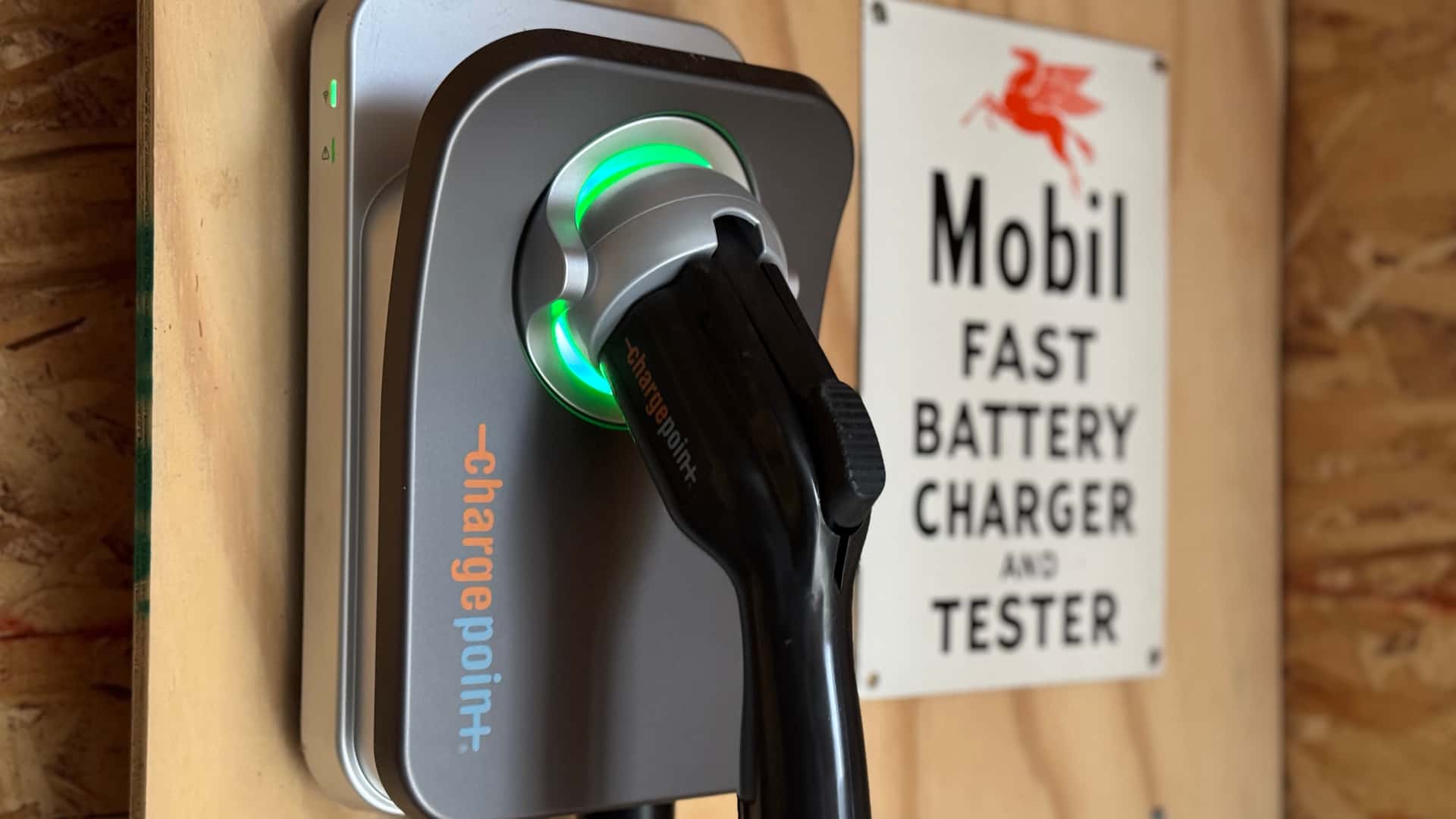
Almost everyone knows that if you need to urgently charge your electric vehicle in a hurry, a home Level 2 charger isn't the best way to do it. Those chargers work best overnight or when a car can be parked for a while. But while ever-more-powerful public DC fast chargers get lots of attention, don't think that the home Level 2 charging industry is slacking off, either.
Today, U.S. charging giant ChargePoint announced that its next lineup of home Level 2 AC chargers for EVs will be even more powerful than its current ones are. With a capable electric vehicle, plus the proper installation and home electrical setup, the unit could deliver speeds of up to 19.2 kilowatts (kW) at home. In Europe, which often has faster AC charging, that goes up to 22 kW.
For context, my own home ChargePoint unit generally charges my Kia EV6 and other cars I test for InsideEVs at a rate of about 7.2 kW. That takes my car from a low charge in something like six to eight hours. With this upgraded unit, I could juice up a lot more quickly—if the right conditions are met. ChargePoint claims this unit may charge a typical EV battery from zero to 100% in about four hours.

“ChargePoint’s next generation of EV chargers will be revolutionary, not evolutionary,” Hossein Kazemi, ChargePoint's hardware CTO said in a news release. “The architecture underpinning them enables highly anticipated technologies which will deliver a significantly better experience for station owners and the EV drivers who charge with them.”
It's worth noting that these speed upgrades will only work if your home charger is wired correctly and your panel and connections can support this level of power. Moreover, not many EVs can support 19 kW AC charging speeds, but that is changing quickly. The updated Toyota bZ4X, for example, jumps from 11 kW AC speeds like my Kia to 22 kW. If everything aligned correctly, then that car could see four-hour home charging speeds, theoretically.
But wait, ChargePoint says; there's more. The new unit supports "vehicle-to-everything capability" so that it can turn your EV into an electrical generator for your home or a building or even return it to the grid (again, if the car supports this.) It uses ChargePoint's Omni Port technology to work with any North American plug type, and is also designed for more seamless solar panel and fleet charging integrations.
More details on pricing, the design of the unit and its release date are coming soon, a ChargePoint spokesperson said. But just from what we know here, this seems like an upgrade that many customers may want to pull the trigger on.
Contact the author: patrick.george@insideevs.com







